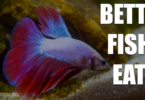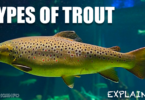Scientifically known as Scomberomorus cavalla, the King mackerel is a remarkable creature that fascinated marine and seafood enthusiasts for generations. With its delicate appearance, powerful swimming ability, and delicious taste, the king mackerel holds a special place in the world of sports and culinary. This article will explore their ecosystems, habitats, fishing methods, and conservation efforts.
What is the Scientific Classification of King Mackerels?
The scientific classification of king mackerel is as follows:
- Kingdom: Animalia
- Phylum: Chordata
- Class: Actinopterygii
- Order: Perciformes
- Family: Scombridae
- Genus: Scomberomorus
- Species: cavalla
What is the Habitat of King Mackerels?
King mackerel are found in warm waters, primarily in the Atlantic Ocean, the Caribbean Sea, the Gulf of Mexico, and along the southeastern coast of the United States, with a water temperature of 68 to 86o F. They are spotted near offshore reefs, wrecks, and other underwater structures or even at the extreme depth of 30 to 150 feet. King mackerel are well recognized for their yearly migrations, going south in the winter and north in the summer months.
What is the Appearance of King Mackerels?
King mackerel are easily recognizable because they have elongated, streamlined bodies with a bluish-green back and silver-white sides and belly. These fish are known for their impressive size – on average, they measure between 24 and 36 inches in length and weigh around 10 and 20 pounds. However, some species can reach a length of 72 inches and weigh around 90 pounds.
What is the Feeding Habitat of King Mackerels?
King Mackerel are carnivorous predators with a voracious appetite which is why they include small fish like herring, anchovies, and menhaden, as well as squid and shrimp in their diet. They exhibit aggressive feeding behavior, and form schools to hunt down their prey with the help of their powerful jaws and sharp teeth.
What is the Reproductive Pattern of King Mackerels?
The King mackerel reproduces usually in the warmer months when water temperatures are conducive to reproduction. In the breeding season, the female mackerel releases eggs, whereas males release sperm in the water current. The fertilization occurs externally, leading to the formation of embryos in the water current. At the end of the developing stage, the fertilized eggs hatch into tiny, transparent larvae which transform into juveniles after a few weeks of hatching.
What is the Conservation Status of King Mackerels?
Like other marine species, the King mackerels face conservation challenges such as habitat degradation and overfishing in their natural habitat. IUCN marked King mackerels in the category of the Least Concern species. However, conservation efforts such as monitoring fishing practices and enforcing regulations to prevent illegal harvesting should be implemented to ensure the continued presence of king mackerel in our oceans.
Interesting Facts About King Mackerels
King mackerel, are fascinating fish with a range of interesting facts:
- Numerous sport fishing competitions held around the coastlines of the United States and other countries include king mackerel as their main catch.
- They are quick swimmers reaching up to 40 mph.
- Due to their migratory nature, these fish frequently travel great distances.
- In the wild, they have a life span of 6 to 7 years.
- King mackerel are a powerhouse of nutrients because they include a lot of Omega-3 fatty acids, vitamin B12, selenium, and niacin and are a great source of lean protein.
Conclusion
King Mackerels is a marvelous fish that offers excitement to anglers and culinary delight to seafood lovers. Its striking appearance, distinctive habitat, impressive size, feeding, and reproductive behavior make it a prized catch. However, responsible fishing practices and conservation efforts are vital to ensure that these species will continue to enjoy underwater life for a long time.







